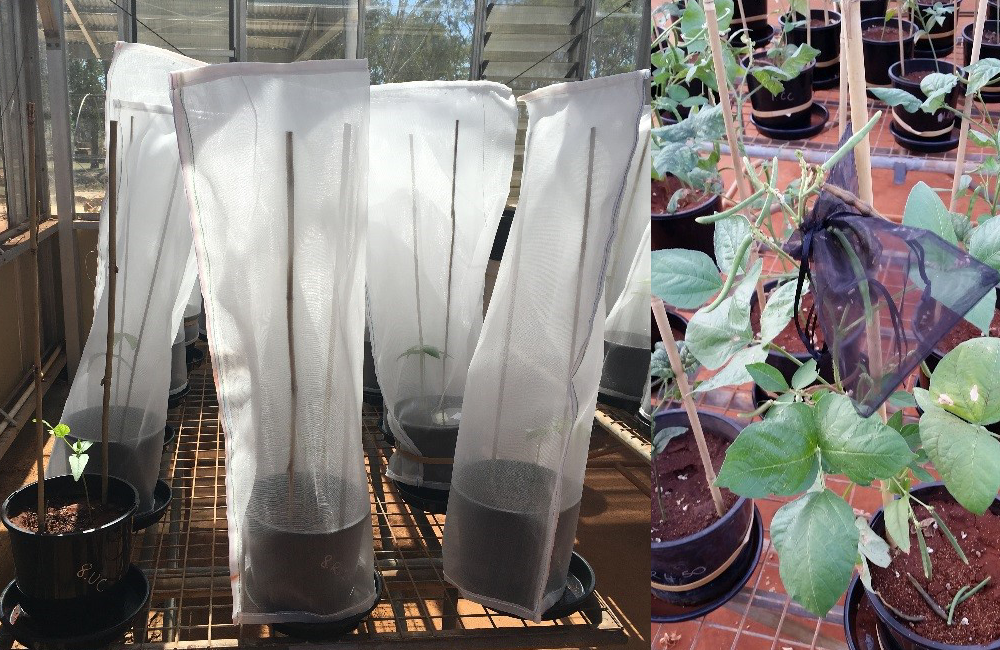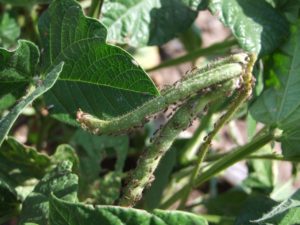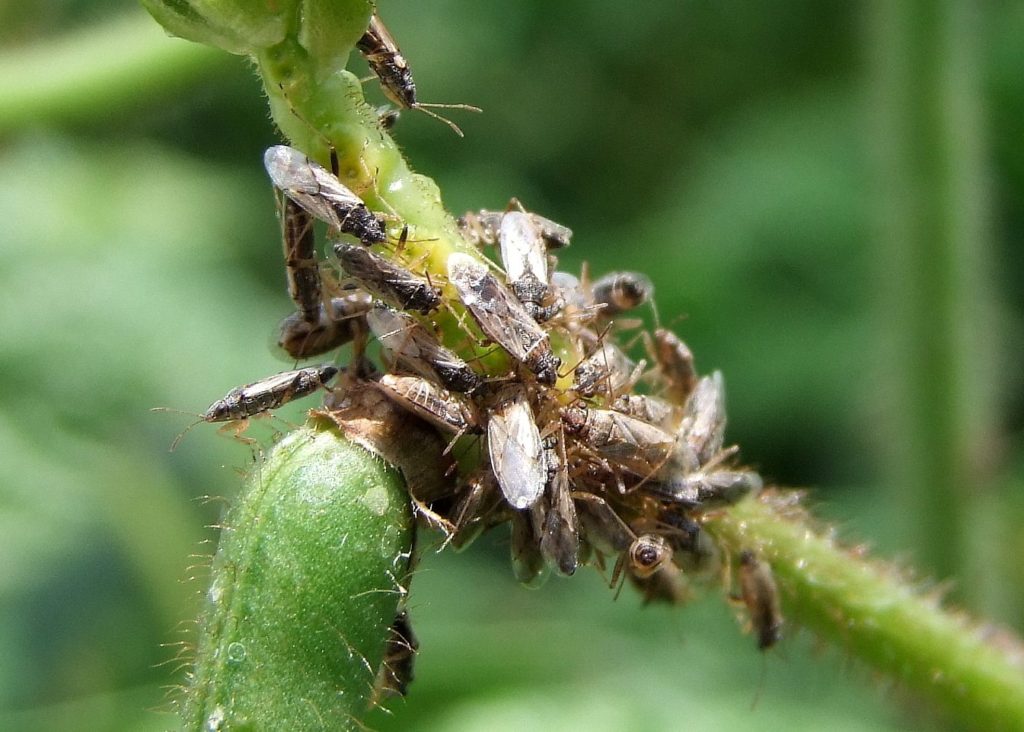Although typically only in low numbers in the Northern Grains region, Rutherglen bugs (RGB; Nysius vinitor) were observed at very high densities (e.g. 50 RGB per pod) in many crops last year.
A glasshouse study was conducted to determine at what plant stage mungbeans were most susceptible to RGB damage, in terms of both yield and seed quality. To do this, we caged different densities of RGBs on plants of different growth and reproductive stages (or individual pods at the late podding stage) for one week (the approximate time the plants were in that stage).
Due to the high temperatures experienced last summer, plant growth and yield were more variable than anticipated. However, results from this study suggest:
- Short exposure of plants to RGB during vegetative or early reproductive stages—even at high densities—did not reduce seed weight, number of filled seeds, or number/proportion of filled pods.
- While there is some evidence that RGB at flowering can cause abortion of all flowers, plants compensated within two weeks of RGB removal with no subsequent impact on yield or seed quality.
- Seed quality was somewhat reduced in small (~5 cm) pods at high RGB densities (50 and 100 RGB per plant).
- When green pods with constrictions were infested, seed weight was significantly less and the majority of seeds were classed as defective by AMA standards (due to wrinkling and visible sting marks), compared to uninfested pods.

Whole plants were caged (secured at bottom during testing) for the vegetative and early reproductive stages. For late podding, Rutherglen bugs were caged on individual pods.
A more targeted trial will be conducted this year (hopefully with better weather conditions) looking at the reproductive stages only, as this was when most damage to yield and/or seed quality occurred.
- In the meantime, management options for RGB include:
- Keep crops and margins weed free, particularly from fleabane
- Monitor crops regularly for RGB infestation
- If chemical control is required, organophosphates (e.g. half rate dimethoate with 0.5% v:v salt) have been shown to give some residual activity (up to 7 days), whereas other pesticides act as a knockdown only and reinfestation can occur within hours.
For more information, contact Liz Williams on (07) 4182 1818 or 0476 850 415.
This research has been conducted as part of project DAQ00196, supported by GRDC.


